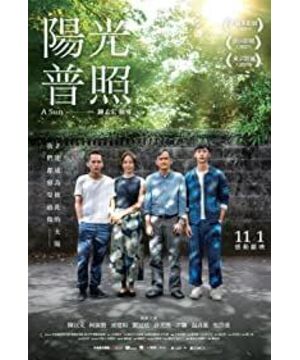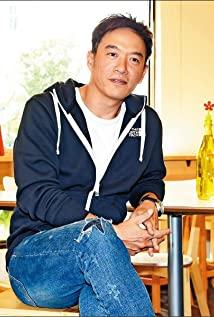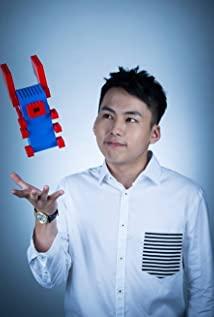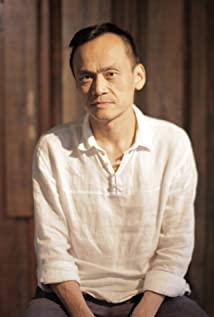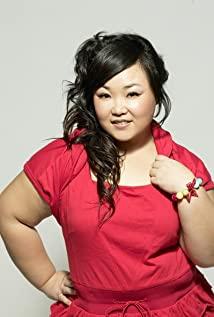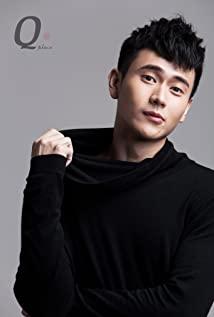The King of Death: "I hope that the Chinese movies will shine in the sun, and that all love will last forever." I still remember that the entire movie circle was swept up by this sentence at the end of November last year. At that moment, we all luckily hope that 2020 will be a year for Chinese films to regain their strength.
However, no one expected that natural disasters and man-made disasters would come as soon as possible, and the Spring Festival stalls had not really started yet, and the force majeure would instantly die down due to force majeure. The so-called "sunshine" looks like a great irony nowadays. Remembering what Camus said in "The Plague", accustomed to despair is worse than despair itself.
Some people say that at this time when misfortunes never come singly and we overcome difficulties together, no one cares about movies anymore; in other words, all of us, as movie fans, should also get out of the movie and look up at our eyes carefully. this world.
But in fact, it is at such a difficult time that the spiritual power given to us by art is truly manifested. The reading and watching movies we have experienced in the past not only urge us to face the reality soberly, but also inspire our transcendent will. We will eventually understand that staying stupid is self-destructive, and pure anger is useless.
The world is not benevolent, and everything is a dog. Even if we have long been used to seeing "evil under the sun", we still believe in the temperature of the sun. But as long as there is the sun, there must be a shadow. Facing the reality that is more magical than the movie, fortunately, there are works like "Sunshine", willing to tear away the shadows and wounds under the sun, and let us see a world that is extremely frank after experiencing the pain.
Since the launch of Netflix on January 24, fans have received mixed reviews of "Sunshine". Some people praised it as "the best Taiwanese family movie after Yang Dechang's "Yiyi"", and there are also some who think that director Zhong Menghong" It’s too hard." But in any case, I'm afraid no one will deny that this "warm title and cruel story" movie may be the most thought-provoking portrayal of this new year's fate.
Author | Pipiqiu, Man Jianghong
As early as last October at the Hong Kong Asian Film Festival, I saw this Taiwanese film "Sunshine", which had been nominated for 11 Golden Horse Awards at that time. After a month, it has lived up to expectations and won five awards including best picture, best director, best actor, etc., and became the big winner of last year's Golden Horse Awards.
With the passage of time, we no longer have to worry about the "collective absence of mainland movies in Golden Horse". After all, only the movie itself will remain. Until January of this year, "The Sunshine" was officially launched on Netflix, and I calmed down and did it again. Although the feelings of the two viewings were not the same, I couldn't help crying unexpectedly. "The Sunshine", such a warm title, tells such a cruel story.
Impulsive, karma for life
The film is about an ordinary family of four. Because the fortunes of the two sons in the family have undergone tremendous changes, the entire family has been traumatized. The youngest son Ahe, played by Wu Jianhe, was arrested by the police when he and his friend Caitou were beheading people with a knife. The eldest son, Ahao, played by Xu Guanghan, has always been the pride of his parents since he was a child, and he has always been proud of his parents. However, one late night, Ahao jumped and committed suicide by jumping off a building.
Both sons are "absent" to varying degrees, and the blow to the family can be imagined. However, the director did not blindly choose to "be cruel to the end." Ah and his girlfriend's pregnancy gave birth to new hope in a hopeless life.
The younger brother Ahe lost his personal freedom in the juvenile education center, and also suffered. Brother Ahao lives in freedom, but his soul is imprisoned by chains. Two people "breath and share fate" with each other, in fact, no one is better than another. Director Zhong Menghong also cruelly failed to give the two brothers even one chance to face the same screen.
Living in the same family, the two brothers are like two sides of AB. The elder brother Ahao "does good homework, looks good, and everything is good", while the younger brother Ahe is "bad and bad." But, who can really guess the ups and downs of fate?
Especially for father Awen, even if he could accept his younger son in jail, he never thought that his elder son would jump off the building to commit suicide. Perhaps only the sentence on the poster can answer all of this: we will all be hurt before we can become each other's sun.
Native family, fate
Hearing that his youngest son Ahe was arrested, his father was still quietly driving on the training ground. From beginning to end, the father was only willing to admit that he had only one son. Ever since he was young, his father never looked at his youngest son, Ah He, just because he was "bad", he even wanted Ah He to be "detained until he was old and dead."
The father puts more love on his elder son, Ahao, who is both excellent in character and academics, and the phrase "grasp the time and master the direction" in the booklet with tuition fees is what a father said to his eldest son Ahao. Hope.
Once, the eldest son Ahao was the "child" in his father's mouth. However, it became true that it was not until the elder son committed suicide that the younger son Ahe finally became the substitute for the "child" in his father's eyes.
Dreaming back at midnight, the father dreamed of walking side by side with his eldest son Ahao on the road. "I just came to see you," Ahao said to his father with a smile. Until one day, the father happened to pass by the convenience store where the youngest son worked; and this "random encounter" also became an opportunity for the father and youngest son Ahe to "reconcile" with each other.
The father and son spoke bluntly, like strangers, while the coins scattered on the table looked like the panic of the father and son. The two sons are separated by yin and yang, and both are invisibly fettered with the fate of their father. Perhaps this is also the continuation of the lifeline in a certain sense.
The mother loves her little son, perhaps to fill in the missing part of the father's love. Whether it is the choice of the elder son or the loss of the younger son, it is all related to this unbalanced family. Between the four family members, there has never been true communication and understanding, and everyone's inner world is a maze. And when the maze becomes more and more cumbersome with the passage of time, it becomes more and more difficult to enter each other. The four people used to live their own lives, and it was not until Ahao left that they slowly began to gather.
Grasp the time, grasp the direction
Grasp the time and grasp the direction. This is a mantra that my father often talks about, and it is also an admonishment in the driving training class. Whenever my father mentioned this sentence, the family members just listened to it as a joke. But from start to finish, it seems that no one has done it. Ah Hao’s suicide made time stand still at that moment, and Ah He’s imprisonment wasted a lot of time, but his father was still only a coach in his life as he abides by the precepts. Time is on the three people, just different shackles.
Before his death, my brother Ahao left this passage: "In this world, the fairest thing is the sun. Regardless of the latitude, the day and darkness in each place account for half of the year... I look around. , It’s not just that these animals have shadows to hide, including you, my brother, and even Sima Guang, can find a shadowed corner. But I don’t, I don’t have a water tank, I don’t have a dark place, only sunlight, twenty-four hours Never stop, bright and warm, and the sun is shining."
A Hao, an excellent brother, always radiates light. He is the expectation of his parents, the hope of his younger brother, and the outstanding one in the eyes of his classmates. However, depressed by nature, he just wanted to hide, hiding in a shadowy corner. He chose to commit suicide in the dark, perhaps because the dark night can best bring him a sense of security.
In contrast, the younger brother Ahe, who grew up in the shadows, has always been eager to step into the sun, but is always afraid of being burned. As a result, one can only run farther and farther in the dark and get lost.
And the father who always held the steering wheel, even though he taught countless students to master the correct driving direction, he ultimately failed to become a guide for his two sons. The younger brother, who has made mistakes all his life, always tries to get up; the older brother who excels in his life, regrettably fell into the darkness of eternal life.
A SUN, A SON
The English name of the film "Sunshine" is "A SUN", I believe that interested fans can see what the intention is. "A SUN" is the same as "A SON", which means that the father only admits that he has only one son.
On the poster, a family of four stood neatly in the sun; in the movie, the four did not even have the same frame. Such an intention, it must be unnecessary to elaborate. This is exactly the difference between "Sunshine" and Yang Dechang's "Yi Yi".
After the eldest son, Ahao, who had been pinned to high hopes, left, the father finally began to re-examine the younger son Ahe, whom he had never even looked at. In order to keep the only "A SON", he even drove the car in the "wrong" direction, hitting Caitou, who had been looking for trouble after he was released from prison, to death, so that his youngest son could move in the right direction of life.
At the top of the sunny mountain, when everything was completely spread out, I was shocked and sentimental. The father loved the eldest son Ahao even more, but after all he could not really understand him; the father had always hated the younger son, but eventually killed someone for him. This emotional dislocation may mean that there is only one "A SON" from the beginning to the end.
Is the photographer and the observer
The film "Sunshine" is the fifth feature feature film directed by Zhong Menghong. It has been three years since his last work "A Good Trip" directed by him. Over the years, Zhong Menghong has been experimenting with different types of film creation, whether it is "Parking" and "Lost Soul", which focus on suspense and thrillers, or "The Fourth Picture" which focuses on social issues, or the black comedy genre "A Good Trip" Zhong Menghong has been seeking an outlet for observing the society and a delicate portrayal of marginal figures.
That year, "The Fourth Picture" not only won the best director of the 47th Golden Horse Awards for Zhong Menghong himself, but also won the best supporting actress for Hao Lei. This is the only trophy that Hao Lei has won at the Golden Horse Awards so far. In "Big Buddha Plus", Zhong Menghong used the name "Nagashima Nagao" as a photographer and producer, and won the best photography award of the year.
Until the latest movie "Sunshine", Zhong Menghong had more different ideas. Therefore, what is presented before us is such a warm and cold story. "What kind of movie can we make?" Zhong Menghong was able to brew the film "Sunshine" after repeated self-questioning like this.
Happy families are often similar, and unfortunate families have their own misfortunes. "The Sunshine" presents one of the many misfortunes, borrowing a passage from my father: "Life is to constantly grasp the time and master the direction. Sad things will always pass and be forgotten. I have always felt that life It's like a road. As long as you hold the steering wheel in your hand, stop at the red light, start slowly at the green light, and drive steadily, and your life will be safe and sound.
Family portraits, everyone is a good actor
It must be said responsibly that if you only watch the movie once, it is absolutely difficult to appreciate the deep meaning of the movie, and even to criticize it after only watching the movie once is extremely conceited and reckless. To cite just one example, someone accused the ending scene of the scene. On the top of the mountain, father Awen slowly told his mother Qin sister the truth about what Ahe had encountered on the rainy night. Some people thought that this method of handling was too mediocre and clumsy. The technique of the TV series.
It was the second time that I saw this place, and I suddenly understood why the film is narrated like this. This narrative is entirely for the purpose of creating characters. In the second half of the film, with the marriage of Ah He and the birth of their children, sister Qin, who had been so heartbroken, has actually begun to change a little, and is preparing to open a beauty salon to support his son and daughter-in-law.
And when life is about to become positive, hearing her husband tell her this crushing truth is tantamount to being stabbed directly in the heart. At this time, sister Qin cried so heartbreakingly that the despair of such a mother can be fully felt by the audience. If it is not handled like this, how should Qin sister's desperate moment be presented?
After watching it twice, of course, "The Sunshine" is excellent in every aspect, but the script is the most commendable. Regardless of story arrangement, character lines or character creation, it can be said that it is a hidden mechanism, connecting back and forth. At the same time, all the actors in this class are also completely immortal.
Let’s talk about the mother’s shaping first. Sister Qin is a beautician in a sensual place, because her husband has almost no sense of presence at home, so she relies on her mother’s inner support. It can be seen that she is the only one who always cared about and cared for her youngest son, Ahe, even if Ahe was in jail. Sister Qin also has a strong and decisive character. She always doesn't panic when encountering problems, and always solves problems to the greatest extent.
I have to say that Ke Shuqin's performance with eyebrows a bit like Xia Wenxi is completely textbook-like. Throughout the play, the audience can see how a middle-aged woman who has been crushed by life is dead and lifeless, and can also clearly see her doubts when she first met Xiaoyu, and every dissatisfaction with her husband’s behavior. Feeling helpless during the ups and downs in life, outside the funeral hall, I heard the regret and sadness of my son's usual situation, not to mention the heartbreaking crying scene at the end of the film.
The last shot of the film shows her sitting in the back seat of Ah He’s bicycle, facing the dazzling sunlight coming down from the direct sunlight. She looks expressionless, but it is enough to let people experience the complex emotions on this face: sadness, despair, helplessness... Various emotions are contained in it. The so-called loud sound and the invisible elephant is probably the case, it is completely the performance of the movie queen.
Besides, Chen Yiwen, the father actor who has been affirmed by the Golden Horse movie emperor. The role of the father is a person who cannot communicate at all at home. Although he is very proud of Ahao, he does not understand Ahao, so in addition to giving his son a driving school yearbook record book every year, and then copy the driving school slogan to encourage his son. , There is no way to understand the psychology of the eldest son. For his youngest son Ahe, from disappointment to disgust, he gave up long ago.
In the second half of the film, he finally accepted such an imperfect young son, Ah He, and then silently followed his son in his own awkward way, until finally he used the inner darkness he could not detect to clear the obstacles for Ah He. Chen Yiwen's great thing is that he completely incarnates himself as a veteran driver instructor who has been working in a driving school for decades. Not only does every line use the driver instructor as an incision, he also acts with the mindset of a driver.
Secondly, we must strongly praise your new "husband" Xu Guanghan. When I saw "The Sunshine" at the Hong Kong Film Festival, it was the first time I saw his work. After all, the "Sin Dreamer" and "Want to See You" starring him at the time hadn't been broadcast yet, but I felt that The actor Ah Hao has a pretty good appearance, and his acting is also very good.
In the middle of the movie, A Hao made that amazing suicide move. Although the first half of the movie was completely without warning, it was not until the second half that the whole picture of his brother was pieced together through the memories or dreams of other characters, and the audience realized that his brother might be serious. Depressed patients, although the film did not make it clear until the end.
Let me mention again that classmate Guo Xiaozhen, who played Wen Zhenling, who missed the Golden Horse Award for Best Supporting Actress, also has a very eye-catching performance. Although there are not a few scenes in total, Wen Zhenling's performance is very well-pressed, and personally think that the most touching scene of the whole film is contributed by her. In the zoo, she took the initiative to hold her brother Ahao, which made people feel particularly warm at that moment.
And Wu Jianhe, who played Ah He, also nominated the Golden Horse Award for Best Actor. He performed the role of Ah He in a very detailed manner from the beginning to the end. But unlike Ke Shuqin, who plays his mother, he mainly uses actions and lines to externalize the character's inner feelings such as guilt and anger. How his younger brother has gradually changed after experiencing such a series of changes, Wu Jianhe's performance is very convincing.
The tall and handsome Liu Guanting plays the loyal and impulsive, but actually very poor Caitou into the slightest, which makes people look disgusting and embarrassed. Long Shaohua, the principal of the driving school, and Lin Zhiru, the actor of Heilun Dad, are also quite eye-catching; even Shi Mingshuai, the actor who is the boss of Ahe Car Wash (yes, the bad policeman in "Manslaughter"), just a few words The lines can make people understand that the boss also has experience in prison.
As the first Taiwanese film to trigger a collective discussion among fans in 2020, "Sunshine" is undoubtedly worthy of being remembered for a longer time. At least it makes us believe that although the world is unfair, fortunately there is still the sun.
The place where the sun can shine is not necessarily how warm; the place where the sun can't shine is not necessarily how dark. The sun is like time, it is always the fairest, day and night alternate, and the four seasons cycle.
Author | Pipiqiu, Man Jianghong; Official Account | Seeing Death in Movies
Edit | Riding a Rooftop Boy; please indicate the source for reprinting
View more about A Sun reviews


